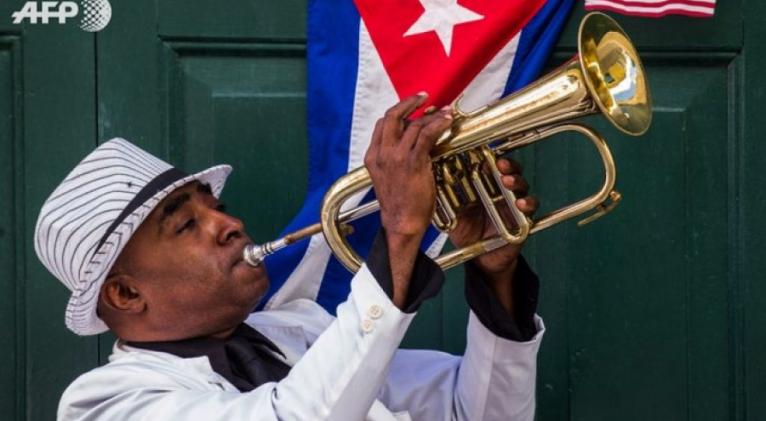Five Years of Cuba-US Relations and Trump's Jump Backwards
especiales

Only five years after the former presidents of Cuba, Army General Raul Castro, and the United States, Barack Obama, announced the restoration of diplomatic relations, the deterioration of the situation between the two countries has reached such extent that experts don’t rule out a setback in that regard.
Cuba doesn’t want the rupture of relations with the United States, but that reality can’t surprise us, if it happens, warned Carlos Fernández de Cossío the general director for the U.S. of the Cuban Foreign Ministry on Monday in Havana.
The diplomat said to the press that the Cuban government believes there should be bilateral relations with Washington, and works in favor of their existence. That is also the interest of most of the North American people, but a group of powerful people in the U.S. intends to break the relations.
The date of December 17th, 2014, many described it as miraculous, because of the coincidence of the announcement with the national festivities for Saint Lazarus Day, which include processions, altars with offerings of sweets, clothes, and jewels, there were candles and thanking prayers for his intervention in these worldly matters.
For a short period of time the world found meaning in optimism. In just over two years the embassies of both countries were reopened, 22 agreements were signed in several sectors and more than half a million North Americans traveled to Cuba.
The millions of dollars for subversive programs, the Cuban adjustment law, the occupation of the Guantanamo naval base and that gigantic political dinosaur that is the economic, commercial and financial blockade against Cuba remained untouched.
Washington's policy change towards Havana did not answer to the recognition of Cuba’s achievements, but to a change in the strategy to obtain the same dominant objectives of destroying the Cuban social project.
Now with president Trump, whom for many is a bull at a china shop within the North American political tradition, he returned almost immediately to the bravado and atmosphere of the Cold War.
By February 3rd, 2017, the former White House spokesman, Sean Spice, announced that Washington would review all policies towards Cuba. A few months later, on June 16th, Trump signed a presidential memorandum announcing the annulment of the approach initiated by his predecessor Barack Obama (2009-2017) and ordering new restrictions on individual travel and commerce.
Only in 2019, that administration has passed more than twenty unconventional measures, to prevent the supply of fuel from various markets through sanctions and threats to ships, shipping companies and insurance companies.
As the Minister of Foreign Affairs denounced at the U.N. General Assembly last November, unilateral measures include the authorization of the filing of lawsuits before U.S. courts of law against Cuban, North American and third-country entities, under the Title III of Helms-Burton Act .
Remittances were restricted to Cuban citizens, the granting of visas was reduced and consular services were limited, an agreement between baseball federations was canceled, individual trips of U.S. citizens were canceled, denounced the Cuban Foreign Minister.
During this time, cruise ships and direct flights to Cuban airports were also banned, except for Havana; the leasing of airplanes with more than 10% of U.S. components and the acquisition of technologies and equipment in similar condition were prevented; commercial promotion activities, cultural and educational exchanges were terminated.
In an exercise in rhetoric and cynicism, the current North American president has affirmed more than once that his actions are aimed at helping the Cuban people, when this procedure has been the main cause for human rights violation of Cubans.
You don’t need to be a rocket scientist to realize that while he is cornered by the impeachment and the race for the 2020 elections begins, the Cuban subject has become a wild card for the republican president, who has been characterized by showing an ambiguous concern towards the course that must follow the relations between Washington and Havana.
On December 17th, thousands of Cubans will pilgrimage again to El Rincón Church to pay their promises to San Lazaro. In houses and town halls there will be ceremonies with drums and ancient rites that came centuries ago from Africa.
There will be those who will ask for more private matters such as healing or a clear path for personal and professional projects. But perhaps there will be a candle to ask the also called Babalú Ayé to intervene in these matters of men and help rebuild the torn down bridges or give strength and character to persevere and resist.













Add new comment